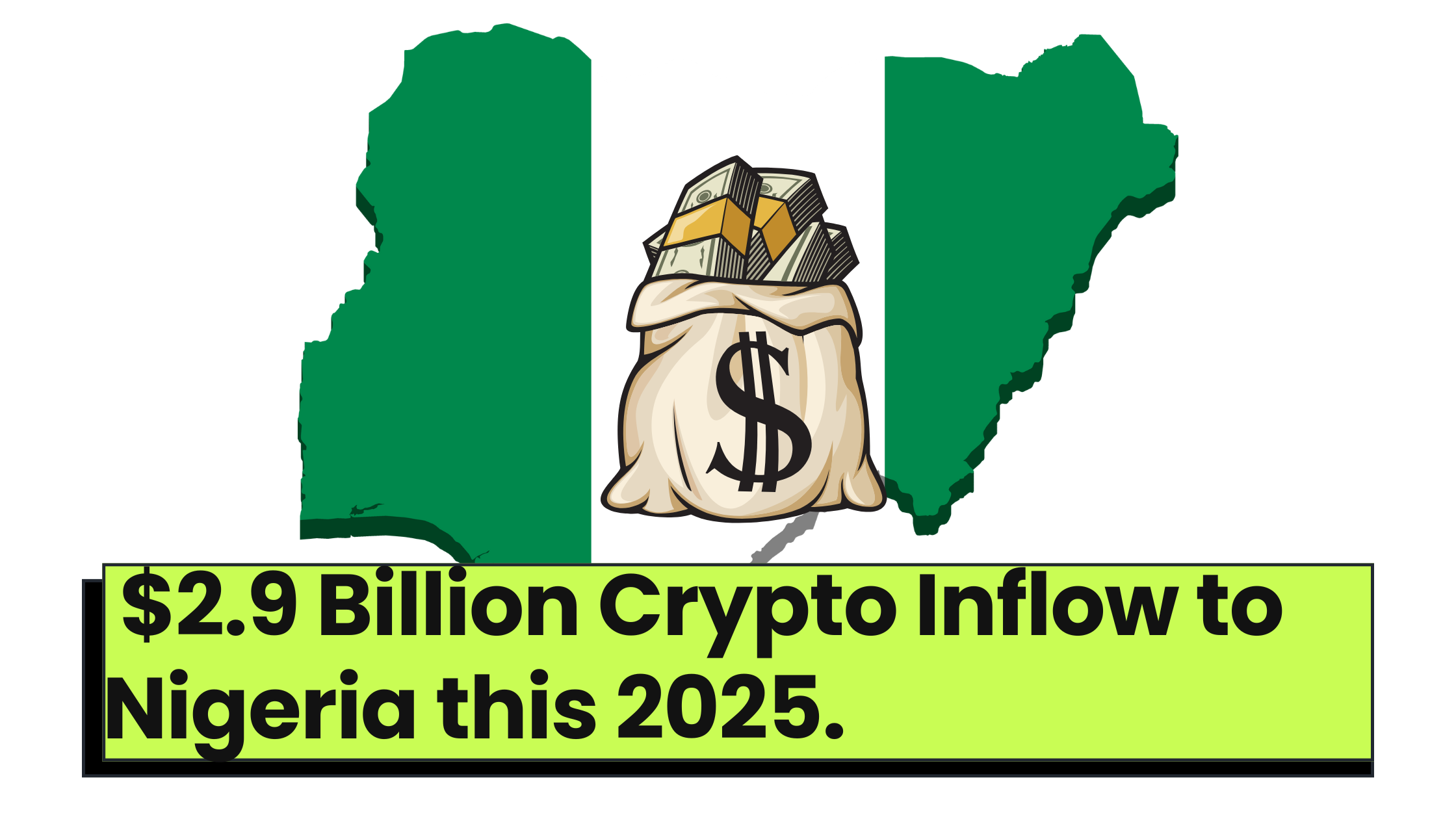Introduction
Nigeria is rapidly emerging as a major player in the global cryptocurrency landscape. With a tech-savvy youth population, increasing smartphone penetration, and economic challenges that make digital assets attractive, Nigeria has become Africa’s largest crypto market. According to recent projections, Nigeria’s cryptocurrency market is set to reach $2.9 billion by 2025. This anticipated growth reflects a shift in how Nigerians engage with financial technology, seeking alternatives to traditional banking systems that often fail to meet their needs.
But what does this projection mean for investors, businesses, and traders? It signifies a future where blockchain technology and digital assets become deeply embedded in Nigeria’s financial ecosystem. This growth is driven by several factors, including the rise in peer-to-peer (P2P) transactions, increased adoption of stablecoins, and an evolving regulatory environment. In this article, we will explore the key drivers behind this explosive growth, the opportunities available in Nigeria’s crypto space, challenges that may arise, and what the future holds.
1. The Driving Forces Behind Crypto Growth in Nigeria
Economic Challenges & Inflation
One of the biggest factors pushing Nigerians towards cryptocurrency is the country’s persistent economic instability. Inflation has eroded the value of the naira, making it difficult for citizens to save and invest using traditional means. As of 2024, Nigeria’s inflation rate has continued to rise, making cryptocurrency a viable hedge against economic uncertainty.
Bitcoin (BTC) and stablecoins such as USDT (Tether) have become popular alternatives, allowing Nigerians to store value in assets that are not directly affected by local economic conditions. By converting naira into crypto, individuals can preserve their wealth and even generate profits through trading and investing.
Growing Adoption of Stablecoins
Stablecoins have gained significant traction in Nigeria due to their ability to maintain a stable value compared to volatile cryptocurrencies like Bitcoin and Ethereum. With the naira facing frequent devaluation, Nigerians are using stablecoins for savings, remittances, and everyday transactions.
USDT, USDC, and BUSD are among the most commonly used stablecoins in Nigeria, allowing individuals and businesses to transact in digital dollars without exposure to naira depreciation. This adoption is further accelerated by the rise of P2P trading platforms, where users can easily convert stablecoins into local currency.
Remittances & Cross-Border Transactions
Nigeria is one of the largest recipients of remittances in Africa, with millions of Nigerians living and working abroad. Traditional remittance services like Western Union and MoneyGram often come with high fees and slow transaction times. Cryptocurrency provides a faster, cheaper alternative for sending money across borders.
Many Nigerians now use Bitcoin and stablecoins to receive remittances from family members abroad, bypassing the traditional banking system. This shift has contributed to the surge in crypto transactions within the country, making Nigeria one of the top markets for blockchain-powered remittances.
Youth and Tech-Savvy Population
Nigeria has one of the youngest populations in the world, with a median age of around 18 years. This demographic is highly receptive to technology and digital finance, making cryptocurrency an appealing option. The country’s youth are actively engaging in crypto trading, DeFi (Decentralized Finance), and blockchain development, creating a robust ecosystem that fuels market growth.
With internet penetration increasing and more people gaining access to smartphones, cryptocurrency adoption continues to rise. Nigerian developers are also making their mark in the global Web3 space, contributing to blockchain projects and creating decentralized applications (dApps) that cater to local and international users.
2. Government Policies and Regulations
The Central Bank of Nigeria (CBN) Policy Reversals
The Nigerian government’s stance on cryptocurrency has evolved significantly in recent years. In 2021, the Central Bank of Nigeria (CBN) banned financial institutions from facilitating crypto transactions, forcing many traders to rely on P2P platforms. However, in late 2023, the government started reconsidering its approach, granting licenses to crypto exchanges and creating a regulatory framework for digital assets.
This shift in policy is expected to bring more stability and legitimacy to the market, encouraging institutional investors and businesses to enter the space. The licensing of exchanges ensures that users can trade securely while complying with anti-money laundering (AML) and know-your-customer (KYC) regulations.
Impact of New Crypto Tax Regulations
In an effort to regulate and monetize the crypto industry, the Nigerian government has introduced tax policies targeting digital assets. While this move has received mixed reactions, it signals the government’s recognition of cryptocurrency as a legitimate financial sector. Taxation could lead to greater mainstream adoption, as businesses and individuals would be more willing to participate in a regulated environment.
Nigeria’s Stance on Central Bank Digital Currency (CBDC) vs. Crypto
The launch of the eNaira, Nigeria’s central bank digital currency (CBDC), was meant to provide a state-backed alternative to cryptocurrency. However, adoption has been slow, with many Nigerians preferring decentralized assets like Bitcoin and stablecoins over a government-controlled digital currency. While the eNaira continues to evolve, its impact on Nigeria’s overall crypto market remains minimal compared to decentralized alternatives.
3. Investment and Business Opportunities in Nigeria’s Crypto Space
Crypto Exchanges & Trading Platforms
With the Nigerian crypto market projected to hit $2.9 billion by 2025, there is a significant opportunity for both local and international crypto exchanges. Platforms like Binance, Luno, and local startups such as Quidax and Patricia are capitalizing on this growing demand, offering innovative solutions for traders and investors.
Blockchain Startups & Web3 Development
Nigeria is witnessing a boom in blockchain startups, ranging from DeFi platforms to NFT marketplaces. Entrepreneurs are leveraging blockchain technology to build solutions that address local challenges, such as financial inclusion and cross-border payments. The country’s developer community is also making strides in Web3, contributing to global blockchain projects.
NFTs & Metaverse Growth
Non-fungible tokens (NFTs) and the metaverse are gaining traction in Nigeria, with artists, musicians, and content creators embracing digital assets to monetize their work. Nigerian NFT projects are making waves on global platforms, and as the metaverse expands, more opportunities will arise in virtual real estate, gaming, and digital commerce.
4. Challenges Facing Crypto Adoption in Nigeria
Despite the optimism surrounding Nigeria’s crypto market, several challenges remain:
- Regulatory Uncertainty – The lack of clear and consistent regulations can create obstacles for businesses and investors.
- Scams & Ponzi Schemes – Fraudulent crypto schemes have eroded trust in digital assets.
- Limited Crypto Education – Many Nigerians lack the knowledge needed to navigate the crypto space safely.
5. Future Outlook: What’s Next for Nigeria’s Crypto Industry?
As Nigeria’s cryptocurrency market continues to expand, several trends are expected to shape the future:
- Increased Institutional Investment – More companies and financial institutions will enter the market.
- Stronger Regulatory Framework – Clearer policies will provide stability and encourage growth.
- Deeper Integration with Traditional Finance – Crypto will become more embedded in everyday financial transactions.
Conclusion
Nigeria is on track to become a global leader in cryptocurrency adoption. With the market projected to reach $2.9 billion by 2025, the opportunities for investors, businesses, and everyday users are vast. While challenges exist, the potential for growth is undeniable. By staying informed, engaging responsibly, and leveraging blockchain technology, Nigerians can shape a thriving digital economy that benefits all. The future of crypto in Nigeria is bright, and now is the time to be part of this financial revolution.








